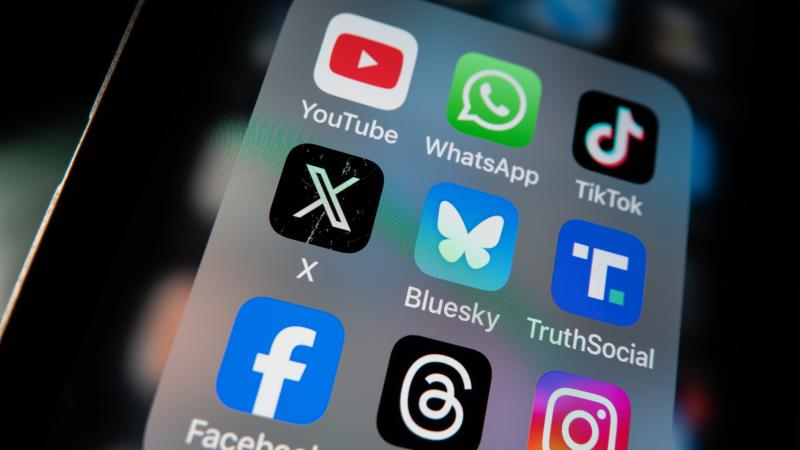Mayo Clinic's jab-or-job mandate faces new legal threat as RFK Jr. petitions SCOTUS for students
George Washington University class-action settlement for COVID shutdown approved with more money for students, less for lawyers. Mere "overlap between a religious and political view" doesn't negate Title VII’s religious protections, 8th Circuit says.
If COVID-19 litigation were like the virus itself, George Washington University cleared its infection with a pricey therapeutic, the Mayo Clinic's infection rebounded, and Rutgers University faces an unusually virulent strain that could spread far and wide.
A federal judge gave final approval to the $5.4 million class-action settlement submitted by GWU students and the private university blocks from the White House, in a tuition-refund lawsuit over the pandemic shuttering of classroom instruction, which outdid Cornell's $3 million.
The amount is the same as preliminarily approved by U.S. District Judge Richard Leon in December, but the 18,000 students who aren't class representatives will get more of that money, thanks to formal objections lodged by two students.
Leon slashed the amount granted to class attorneys from 33% (just under $1.8 million) to 20% ($1.08 million), beyond even the reduction the objectors requested, because the total settlement was relatively small. The parties had estimated students' original share would be $193 each.
It's the second controversy the university can leave behind in less than a month, after D.C. police cleared its disruptive pro-Palestine encampment hours before Democratic Mayor Muriel Bowser was slated to testify before a hostile House Oversight Committee, which canceled the hearing.
The 8th U.S. Circuit Court of Appeals reinstated a wrongful-termination lawsuit against the Mayo Clinic under Title VII of the Civil Rights Act and Minnesota Human Rights Act, consolidated from five original suits, finding a lower court held the fired employees to the wrong legal standards.
The renowned Minnesota medical nonprofit fired three employees after denying them religious accommodations to its COVID vaccine mandate, and two when they refused to test weekly for COVID after receiving exemptions.
All said the testing and vaccine mandates violated their religious beliefs that their "body is a temple," and those denied accommodations additionally said using a product "produced with or tested with fetal cell lines" violated their antiabortion views.
President Bill Clinton appointee U.S. District Judge John Tunheim, known for chairing a review board tasked with finding more documents relevant to President Kennedy's assassination, told two they jumped the gun in filing Equal Employment Opportunity Commission complaints before they were fired, thus failing to "exhaust their administrative remedies."
Tunheim reached the merits of the Title VII "failure to accommodate" allegation for the other three, ruling that they "failed to adequately connect their refusal of the vaccine with their religious beliefs." He found the Minnesota law didn't apply to the five at all.
The three-judge appeals panel, composed of appointees by presidents George W. Bush and Donald Trump, said Tunheim was wrong on all counts.
Two plaintiffs filed EEOC complaints after receiving "Final Written Warnings" that noncompliant staff would be fired if they didn't relent within a month, and once Mayo received them "it had notice of an unlawful termination claim," Bush appointee Judge William Benton wrote for the unanimous panel.
The clinic claimed the terminations were not "reasonably related" to the COVID policy by citing "cases with greater differences between the subject matter of the EEOC charge and the eventual Title VII claim," such as alleging racial discrimination and then suing for sex bias, according to Benton.
The ruling said "the timing" also suggests the firings were related to the policy. The clinic fired one "less than a week" after she filed a charge, and the other, within a month.
Benton said Judge Tunheim violated circuit precedent by "focusing on specific parts of the complaints" by three plaintiffs "to rule the anti-vaccine beliefs 'personal' or 'medical.'"
He was supposed to "consider the complaint as a whole" and follow EEOC guidance that mere "overlap between a religious and political view does not place it outside the scope of Title VII’s religious protections," the ruling stated.
By "emphasizing many Christians elect to receive the vaccine," Tunheim violated a Supreme Court proscription on limiting the Free Exercise clause to "beliefs which are shared by all of the members of a religious sect," Benton wrote.
While "Minnesota’s federal courts are split on the issue" of whether the state's MHRA offers "a cause of action for failure to accommodate religious beliefs," the law's broad wording and rulings that call it "more expansive" than federal law, and "more extensive" in its protections, make clear the state Supreme Court would find a cause of action, according to Benton.
Independent presidential candidate Robert F. Kennedy Jr.'s Children's Health Defense petitioned the Supreme Court on behalf of 13 Rutgers students last week to take their challenge to its recently rescinded COVID vaccine mandate.
Fewer than three dozen such mandates remain, overwhelmingly in private colleges, according to tracking by No College Mandates.
The New Jersey public university only ended its mandate April 1, giving no explanation, despite the fact that it won at the 3rd Circuit two months earlier. A concurring judge had questioned the "wisdom" of the policy, however, noting it didn't originally apply to faculty and was invoked to prevent a graduating student from finishing remotely.
Kennedy's group asked the high court to resolve four questions with loaded phrasing.
"Is there a fundamental right under the Fourteenth Amendment’s Due Process or Equal Protection Clauses to exercise informed consent freely and refuse unwanted medical treatment with an experimental vaccine that is not effective at preventing transmission of disease, is not safe and can cause serious injury or death?" the first asked.
The court should settle which "standard of review is appropriate" under the widely invoked 1905 Jacobson ruling, in which the high court upheld a fine of $5 – roughly $180 today, less than a third of the Obamacare flat-dollar penalty when it was repealed five years ago – for refusing the vaccine against smallpox, which had been invented more than 100 years earlier.
"Did Rutgers University lack expressly delegated authority to mandate experimental vaccines during an outbreak that were not effective, or safe, upon its students – even students attending classes remotely – while excluding professors or employees from the mandate?" CHD asked.
The mandate may also violate the Food, Drug and Cosmetic Act by failing to inform "individuals to whom the product is administered are informed … of the option to accept or refuse administration of the product," the petition says.
The final question could open a Pandora's Box of litigation beyond Rutgers if the Supreme Court accepts its premise, that the trial court "erroneously applied its own facts to the legal analysis."
At the pleading stage, the court should have accepted "the Students’ allegations as true," CHD said: The vaccines were "experimental medical products … known to cause numerous serious adverse effects," with "insufficient evidence that they prevented infection or transmission," and indeed that COVID "is not a vaccine-preventable disease."
The Facts Inside Our Reporter's Notebook
Links
- $5.4 million class-action settlement
- Cornell's $3 million
- The amount is the same as preliminarily approved
- Leon slashed the amount granted to class attorneys
- hours before Mayor Muriel Bowser was slated to testify
- 8th U.S. Circuit Court of Appeals reinstated
- finding more documents relevant to President Kennedy's assassination
- Children's Health Defense petitioned the U.S. Supreme Court
- tracking by No College Mandates
- ended its mandate April 1
- $180 today
- Obamacare flat-dollar penalty
- invented more than 100 years earlier














